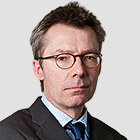Iran has agreed to allow UN nuclear inspectors to install new memory cards into its cameras monitoring the country’s controversial nuclear programme in a move that could keep the inspection process on life support, and even ease a path towards a lifting of US sanctions.
Rafael Grossi, the head of the International Atomic Energy Agency (IAEA), the UN’s nuclear watchdog, struck the deal in Tehran on Sunday after two hours of talks and will report to the IAEA’s board meeting on Monday.
His breakthrough makes it less likely European states and the US will table a motion of censure against Iran that would have been passed to the UN security council.
Grossi had been preparing to report to the IAEA that his ad hoc agreements to monitor the nuclear programme struck in February had in effect collapsed. Iran, now led by a new more hardline president, Ebrahim Raisi after elections in June, had been blocking a visit by Grossi, leaving European states little alternative from their perspective but to censure Iran.
The head of the Iranian atomic energy association, Mohammad Eslami, said he had held constructive talks with Grossi and as a result new memory cards would be installed. The existing cards showing Iranian activity at its main nuclear sites will be kept in Iran under what is described as a joint seal. It has also been agreed the cameras can be serviced. No further details were given in the joint statement apart from that the two sides had reached an agreement on how this was to be done.
Grossi will return to Tehran at a later date for what was described in a joint statement as “high-level consultations with the government of the Islamic Republic of Iran”.
The talks will aim to revitalise what had previously been an intrusive inspections process. The Iranian parliament in February, putting pressure on the previous administration led by Hassan Rouhani, had ordered the government to withdraw from the agreement covering the UN inspections.
This left the IAEA increasingly in the dark on how Iran was developing its nuclear programme. Tehran had admitted it was using more sophisticated centrifuges to a purity of 60%. The deal lets Iran produce enriched uranium but only at an underground plant at Natanz and only with first-generation IR-1 machines, which are far less efficient. It also caps the purity to which Iran can enrich uranium at 3.67%.
Grossi said he would be returning to Iran for further talks to build trust between the IAEA and the new government.
On his return to Vienna, Grossi said the agreement on servicing the IAEA cameras meant continuity of knowledge for his inspectors, which was about to be lost, would be retained even though his inspectors would not have immediate access to the film on the camera. He said: “We will be able to keep the information needed to maintain continuity of knowledge.”
He added that the IAEA was “getting to the point where we needed immediate rectification, and this agreement gets us just that”. He described the agreement as a stopgap, but insisted it would be implemented within a few days.
Admitting that over recent weeks “there had been a major communication breakdown with Iran”, he said his meeting on Sunday in Tehran also led to an understanding that there would be further, broader meetings with the new administration at higher levels in which he would be free to raise other long-standing issues, including unexplained nuclear particles found in some sites. “Nothing will be sidelined and nothing hidden,” he said.
Tehran’s increasing brinkmanship had antagonised Russia, a natural ally, and also led to growing pressure on the US from Iran’s chief regional adversaries, Israel and Saudi Arabia, to admit the talks on the revival of the nuclear deal were at a dead end, thereby requiring a new more aggressive strategy.
The US special envoy on Iran, Robert Malley, had held talks in Moscow and Paris last week ahead of the IAEA board meeting. The UK was represented at the Paris meeting by its former ambassador to Iran, Robert Macaire, an indication that the British diplomat is going to stay with the Iran file even though he left the embassy in the summer.
A censure motion at the IAEA board meeting would have seriously jeopardised the stalled talks between the US and Iran on the US lifting most of its sanctions in return for clear Iranian compliance with the nuclear deal signed in 2015. Those talks have been on hold since Raisi’s election, partly because he needed to appoint a new negotiating team.
The former Iranian foreign minister, Javad Zarif, has been replaced by Hossein Amir-Abdollahian, but there was little from Iran on whether it wanted to restart the negotiating strategy. The US claimed the talks had in principle reached a wide-ranging agreement on the lifting of sanctions, a move that would also lead to the release of as many as 10 dual-nationals.











